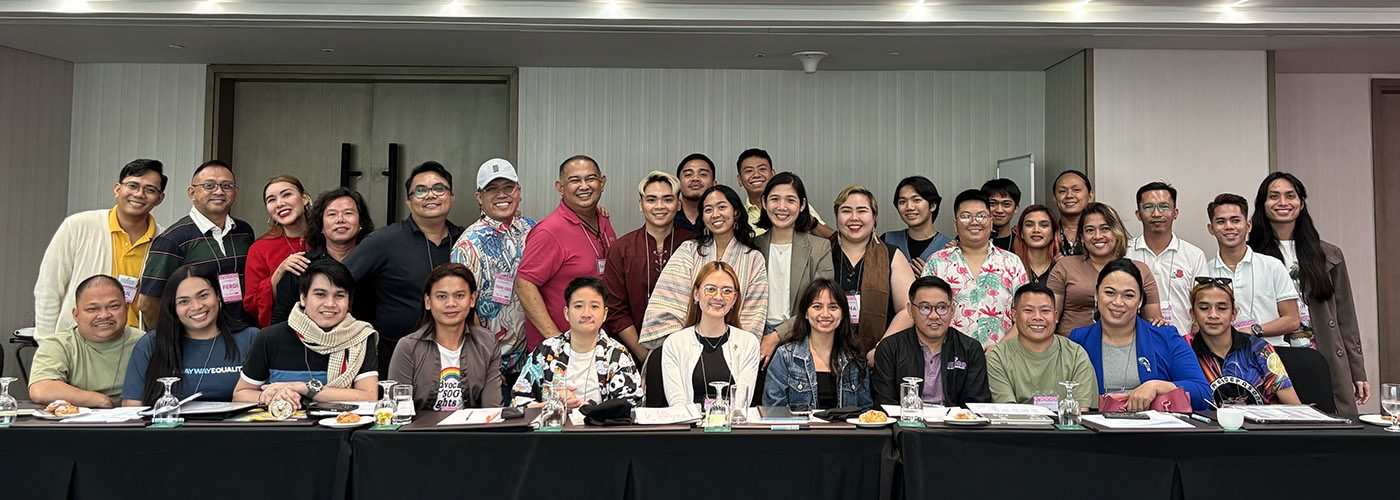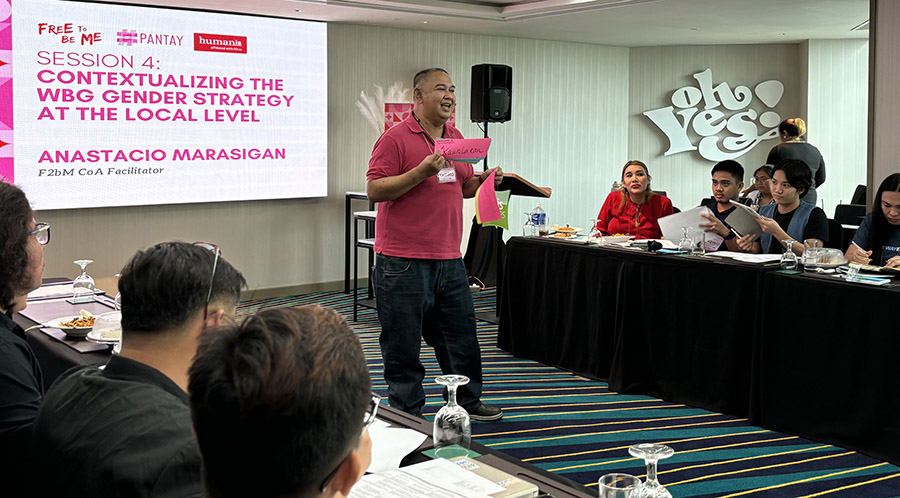Last August, the Philippine Free to be Me (F2BM) Communities of Action (CoA) convened at Manila for pivotal Training on Lobbying and Campaigns. The training centered on the World Bank Group’s 2024-2030 Gender Strategy, with gender advocacy organizations identifying crucial opportunities for alignment and potential funding.
The F2BM Philippine CoA is a coalition of LGBTIQ+ organizations and activists that has been steadfast in its mission to dismantle legal and policy barriers, challenge gender norms, and uplift the lives of LGBTIQ+ individuals.
With the Philippine Anti-Discrimination Alliance of Youth Leaders (PANTAY) Inc. as the CoA current host organization, PANTAY initiated the WBG advocacy work starting with the desk research of the Gender Strategy document and an implementation of a localized lobbying and campaigns training. The CoA collectively hoped that this endeavor would equip them with the means to not only strengthen their existing policy advocacy efforts at the local and national level but to also explore engagements with multilateral organizations like the World Bank Group in pushing for economic programs to be more accessible for LGBTIQ+ Filipinos.
Queering and localizing the World Bank Gender Strategy
In early 2024, the World Bank Group published its Gender Strategy for 2024-2030, emphasizing three key objectives: ending gender-based violence, expanding economic opportunities, and empowering women as leaders. Each objective has its corresponding expected outcomes that the World Bank hopes to achieve. In localizing the WBG Gender strategy, desk research was developed to contextualize and understand entry points for the CoA for realistic lobbying and engagements. This presented a significant opportunity for the CoA, as aligning their projects with these goals could enhance their chances of securing grants and funding. Such support would not only sustain but also accelerate the CoA’s efforts to drive improvements and gender-transformative change in the different pathways that the CoA focuses on.
During the training, CoA representatives grouped into clusters to align their priorities with both their organizational agendas and the World Bank Gender Strategy. By the end, each cluster had drafted a localized gender strategy and advocacy plan, outlining objectives, budgets, timelines, innovations, and success metrics based on the World Bank Gender Strategy’s objectives and outcomes.
For Toots Adastre, Executive Director of Gayon, the process highlighted how multilateral organizations like the World Bank are often overlooked in favor of UN agencies. “While this process is lengthy, it’s crucial to make room for it. We need to ensure the World Bank knows there are organizations ready to partner with them and to be prepared for such opportunities,” Adastre emphasized.
Moving forward
The F2BM CoA reconvened in September for their annual planning. The resulting drafts of localized gender strategies and advocacy plans of the CoA clusters were reopened, discussed, and refined for adoption as part of the CoA pathways strategies. The CoA strategies will be further supported by the F2BM strategic partners such as ILGA World and Outright International.
“This is the first time that the World Bank Group has been discussed and even considered by LGBTIQ+ organizations. The time is ripe for advocates to gain a better understanding of how financial institutions operate and how we can leverage them effectively,” said PANTAY Executive Director Rye Manuzon.





